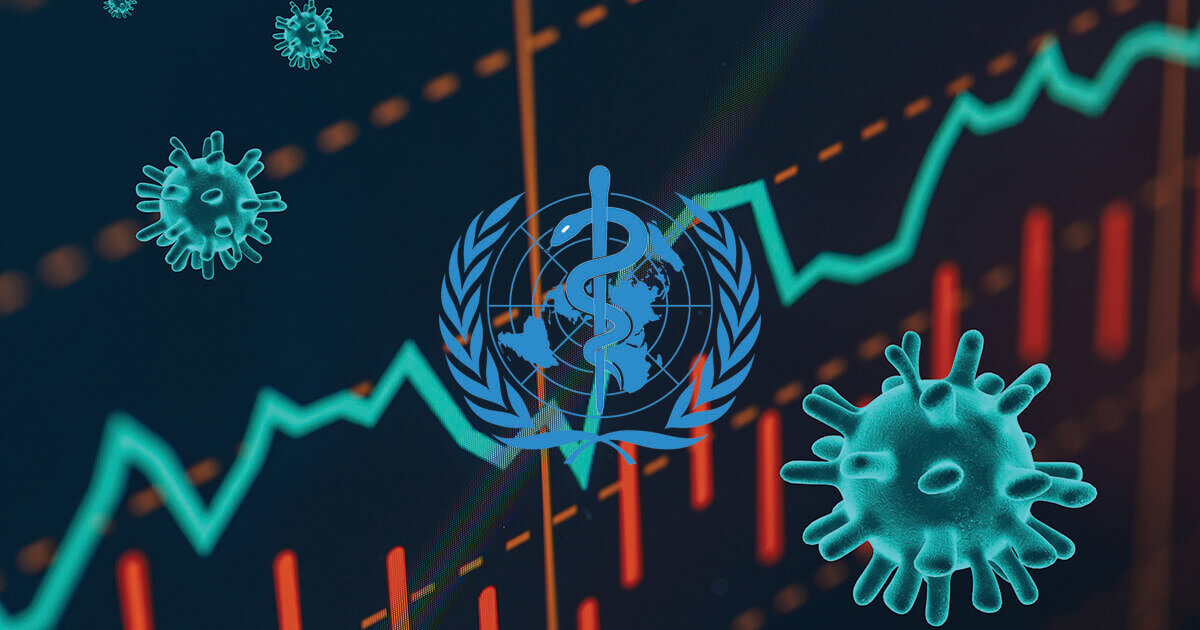Blockchain Against Corona: How the World Health Organization Uses DLT Compared to the Rest of the Globe
With disruptive technology including blockchain being continuously deployed to tackle the coronavirus COVID-19 pandemic, the World Health Organization (WHO) has chosen to partner with leading technology and blockchain companies to build a distributed ledger technology-based platform to share data.


With disruptive technology including blockchain being continuously deployed to tackle the coronavirus COVID-19 pandemic, the World Health Organization (WHO) has chosen to partner with leading technology and blockchain companies to build a distributed ledger technology-based platform to share data. These companies include IBM, Oracle, Microsoft, and decentralized platform Hacera.
The platform, MiPasa will be utilizing IBM’s enterprise-grade blockchain Hyperledger Fabric. With its analytic tools and sources of data, the project aims to help citizens and public health officials to track coronavirus infection hotspots. It was also emphasized the data analytics and privacy tools do not collect any personal information from its users but at the same time alert the users if they were in the vicinity of anyone infected with the coronavirus.
According to the MiPasa website, a number of national health institutions are collaborating in the WHO’s project, including the Hong Kong Department of Health, the US and Chinese Centers For Disease Control and Prevention, the European Centre for Disease Prevention and Control, and the National Health Commission of the People’s Republic of China.
MiPasa describes the platform as a “verifiable information highway,” and that the platform “can help monitor and foresee local and global epidemiological trends and detect likely asymptomatic carriers by feeding big data on infection routes and occurrences to powerful AI processors around the world.”
Tech against Corona
The “Tech against Corona” initiative was launched by a consortium of Dutch companies to provide the Dutch government with access to disruptive technology including blockchain to be used to fight against the spread of the coronavirus.
Tymlez, a blockchain firm based in the Netherlands is providing its services and technologies to the government free of charge. The blockchain platform aims to “model the medical goods ecosystem through a platform that matches supply and demand.” Blockchain’s innate transparency feature would be leveraged across the supply chain to prevent price gouging of medical supplies.
Cyberspring, a cybersecurity firm has offered its security services to hospitals, while Taxion, an information security firm will set up online systems to organize volunteer workers.
Proving you don’t have coronavirus
Elastos DMA, a blockchain company based in Shanghai, has been developing an app that distributes information related to the coronavirus on blockchain. It has been common in China when entering a building or institution, each person’s body temperature is checked and a QR code shows that they have not visited any infected areas within 14 days.
Elastos DMA believes that there is still room for improvement with the system as all the data relies on centralized databases as this method of health check could put security guards at risk of exposure to the coronavirus.
The app developed by Elastos, called GreenPass records information regarding drug tests, body temperatures, and travel history on a blockchain. Distributed ledger technology was chosen due to its immutable and tamper-proof nature.
Monitoring blockchain by the PHBC
The Public Health Blockchain Consortium (PHBC) has announced the launch of a monitoring blockchain aimed to verify communities and workplaces that are free from the coronavirus COVID-19, as well as other high-risk viruses, bacteria, and fungi. The Consortium consists of health authorities, universities, healthcare providers, and innovators who aim to collect and store anonymous health data on the blockchain, to improve the lives of people in the world. The blockchain monitor would help identify safe zones where there have been no confirmed cases of the coronavirus.
Data would be stored and updated in real-time using blockchain, and the information will be received from surveillance providers who use a combination of technologies including artificial intelligence (AI) and geographical information systems.
However, coronavirus tracking and surveillance, depending on the process, may have consequences for the protection of personal data privacy.
Image source: Shutterstock


.jpg)
